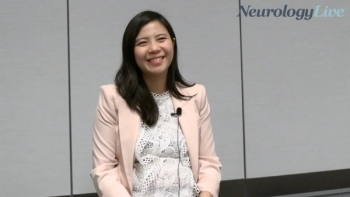
The associate professor of neurology at Mayo Clinic Rochester talked about using artificial intelligence-electrocardiogram at baseline to predict adverse vascular events in patients with migraine. [WATCH TIME: 5 minutes]

Isabella Ciccone, Content Associate, NeurologyLive®, has been with the team since September 2022. Follow her on X @iciccone7 or email her at [email protected]

The associate professor of neurology at Mayo Clinic Rochester talked about using artificial intelligence-electrocardiogram at baseline to predict adverse vascular events in patients with migraine. [WATCH TIME: 5 minutes]

Findings from a recently published study may offer clinicians a deeper understanding of the complex relationship between Parkinson disease biology and social or environmental factors.
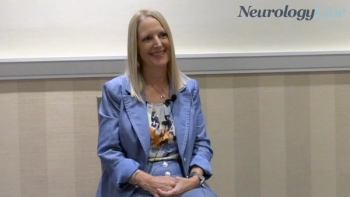
The chief program officer at PMD Alliance described an interactive program designed to help health care providers better understand the lived experience of patients with Parkinson disease and related movement disorders. [WATCH TIME: 6 minutes]

The FDA-cleared devices allow for a more simplified administration of the liquid medicine Hyqvia, reducing the number of steps needed to prepare for the infusion of 2 dual vial units or more.

A duo of experts discussed a novel hybrid trial approach combining in-home video assessments with traditional visits to improve Parkinson disease research participation and assess a new investigational therapy. [WATCH TIME: 7 minutes]
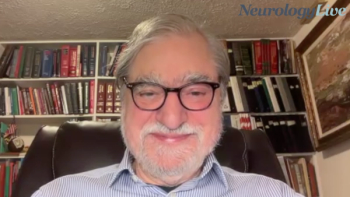
The professor of neurology at Thomas Jefferson University discussed the shifting diagnostic challenges of stiff person syndrome and reviewed current and emerging treatment options. [WATCH TIME: 6 minutes]

Findings revealed that dry mouth and falls were reported more frequently in patients with Parkinson disease treated with solifenacin in comparison with pelvic floor muscle exercise-based behavioral therapy.
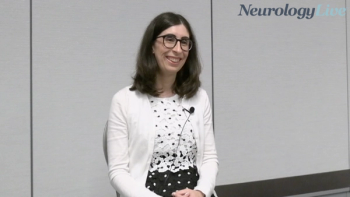
At AHS 2025, the assistant professor of neurology at the Icahn School of Medicine at Mount Sinai highlighted the challenges LGBTQIA+ individuals may face in migraine care. [WATCH TIME: 6 minutes]
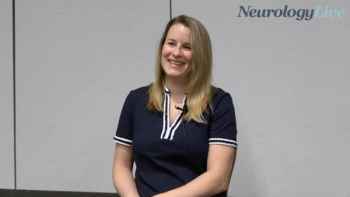
The assistant professor of neurology at Wake Forest Baptist Atrium Health discussed emerging research on how breast size may contribute to headache disorders, including migraine. [WATCH TIME: 5 minutes]

A recent research letter emphasized that meningitis could be a possible early manifestation of MOG antibody–associated disease, according to results previously published in an international study.

Recent findings suggest that laser interstitial thermal therapy could offer patients with drug-resistant mesial temporal lobe epilepsy a minimally invasive and safe therapeutic option.
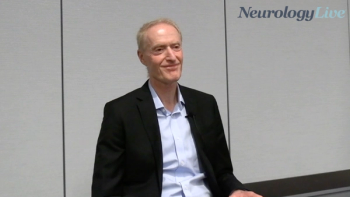
The professor of neuroscience at Harvard Medical School highlighted gaps in headache care access, provider training, and medication availability in regions like Kenya and the Philippines. [WATCH TIME: 5 minutes]

The professor and chair of neuroscience at UT Southwestern Medical Center offered an overview on his keynote lecture presented at AHS 2025 on the circadian clock in relation to headache.

A recent study highlighted key unmet needs and barriers that may lead to preventable nursing home placements among Black, Hispanic/Latino, and White patients living with dementia.

The professor of neurological surgery at Weill Cornell Medicine shared his reaction to the recent approval of the Exablate Neuro platform that uses MRI-guided focused ultrasound to treat Parkinson disease. [WATCH TIME: 5 minutes]

Recently reported phase 2b results revealed that PrimeC consistently altered ALS-related miRNA expression, reinforcing its potential as a multi-targeted therapy and aligning with previously reported clinical benefits.

The movement disorder specialist and patient living with Parkinson disease highlighted the need for a more human-centered approach in managing chronic and progressive movement disorders. [WATCH TIME: 6 minutes]

The professor of neurology at Albert Einstein College of Medicine talked about new findings presented at AHS, which suggested that both men and women with migraine can face significantly increased risks of ischemic stroke. [WATCH TIME: 5 minutes]

The investigational oral orexin receptor 2-selective agonist oveporexton is designed to restore orexin signaling to address the underlying orexin deficiency caused by narcolepsy type 1.
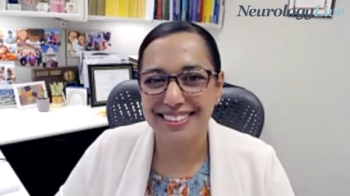
The associate professor of neurology at Mayo Clinic College of Medicine discussed findings presented at AHS 2025 from a post hoc analysis of the phase 3b DELIVER study testing eptinezumab in patients with migraine. [WATCH TIME: 5 minutes]
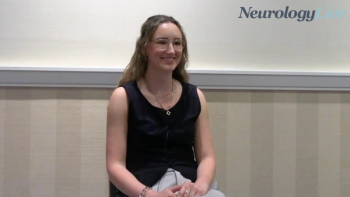
The neuropsychiatry researcher at King's College London highlighted significant gender differences in anxiety, depression, quality of life, and social support among patients with PD undergoing deep brain stimulation. [WATCH TIME: 5 minutes]

Indirect treatment comparisons showed significantly greater or statistically higher improvements in MG-ADL scores with nipocalimab versus other FcRn blockers over 24 weeks.
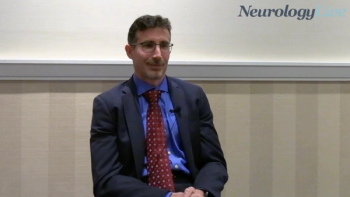
The assistant professor of medicine at Stanford University highlighted how gastrointestinal dysfunction in Parkinson disease can affect levodopa bioavailability and symptom management. [WATCH TIME: 7 minutes]

New findings showed that adjunctive VNS therapy led to sustained reductions in generalized tonic-clonic seizure frequency, supporting its long-term efficacy in patients with drug-resistant epilepsy.

Exablate Neuro is a noninvasive, MRI-guided focused ultrasound technology designed to treat targeted brain areas without incisions or implanted hardware, offering a lower-risk alternative to traditional surgery.
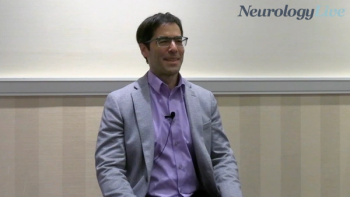
The director of movement disorders at the Banner Sun Health Research Institute discussed distinguishing atypical Parkinsonian disorders early and planning care around their complex symptomatology. [WATCH TIME: 4 minutes]
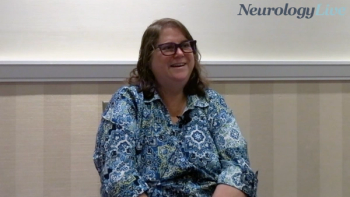
The nurse practitioner in the Center for Movement Disorders & Neurorestoration at the University of Florida discussed a complex case of childhood-onset dystonia treated with DBS. [WATCH TIME: 6 minutes]

Catch up on any of the neurology news headlines you may have missed over the course of June 2025, compiled all into one place by the NeurologyLive® team.

A physician assistant specializing in Parkinson disease shared key clinical considerations for selecting and educating patients about on-demand therapies for the movement disorder.
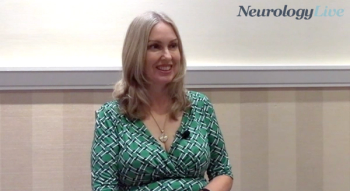
At ATMRD 2025, a patient advocate living with PD and advisory board member of the Parkinson's Foundation outlined key nonpharmacologic tools that have supported her care journey. [WATCH TIME: 5 minutes]